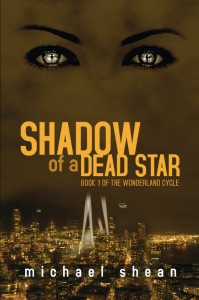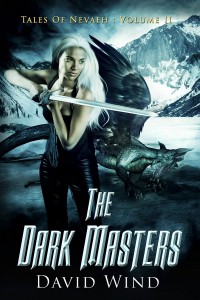Shadow of a Dead Star is science-fiction cyberpunk, set in a future America called Wonderland, where over-reliance on dark technology fuels society, and sexual and materialistic fantasies are prevalent. Commercial status even determines human rights: the population of Seattle is divided between poverty-ridden Old City, the tumultuous Verge, and the dazzling New City; where lights, advertisements, and simulations overload the senses. I was fully immersed in the opening scenes and the author’s technology of the future was concise and clear. There was no room for ambiguity. After 17%, the writing breaks free from minor rigidity, and then the investigation unfolds with tension.
Federal Agent Walken is the exception, or so he believes; he’s a man of flesh who distrusts the widespread implicit faith in machines. Walken must investigate a case of Princess Dolls, little girls modified into sex toys, a practice that infuriates him. When the Princess Dolls are hijacked, Walken is ordered to investigate dubious sources to trace their location. However, he must work alongside “Civilian” Protection (CivPro) officers: who are unsympathetic and uncooperative because corporate interests masquerade behind most civil and public services. All Walken has is his instincts; and they haven’t let him down yet… I easily sympathised with Walken’s remarkable point-of-view, and liked his tough-guy persona.
Shadow of a Dead Star is a terrifying glimpse into a world where individual independence and initiative has been made obsolete: doors with no handles; administrative workers physically connected to the machines they use; and soldier helmets with view-screens instead of visors. Body “branding” is commonplace. Indeed, faith in machines is absolute to the extent that Walken sees himself alone, apart, and distinct from everybody. For readers worried about the rapid technological invasion in the information age, Shadow of a Dead Star reads like a political statement: cyberpunk realism if you like. Expect a few familiar cyberpunk elements, such as brain-riding (hacking), virtual reality, and an “underground” movement. Many of the main and sub-characters appeared typical of cyberpunk, but with relief the author fast-forwards past all pretence.
The sudden injection of first-person thriller action in the latter half kept me enthralled; it was like a first-person shooter video-game. Don’t expect an average plotline either. Just when you think it’s going to lapse into predictability, it takes a sci-fi/horror twist that is so “out-there” that I was horrified, stunned, and yet fascinated because the conclusion made perfect sense. Shadow of a Dead Star concluded but it didn’t fully end, which is something that will no doubt be cleared up in the sequel. Overall, what an experience! What was life like before this meteor-impact of a novel?


